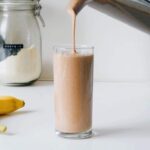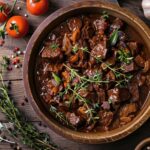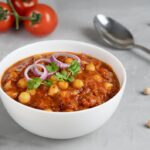Gut health plays a crucial role in overall well-being, influencing everything from digestion to mood and immune function. However, certain foods can disrupt the balance of gut bacteria, leading to digestive issues, inflammation, and other health problems. Here’s a guide to 20 foods that South Africans should consider avoiding to maintain a healthy gut.
1. Processed Meats
Processed meats like boerewors, bacon, and deli meats are high in preservatives, sodium, and unhealthy fats. These can disrupt gut bacteria, leading to inflammation and increased risk of chronic diseases.
2. Fried Foods
Fried foods such as vetkoek and fried fish are hard on the digestive system. They are typically high in unhealthy trans fats, which can alter gut microbiota and contribute to gut inflammation.
3. Refined Grains
White bread, pasta, and other refined grains have been stripped of their fiber and nutrients. These foods can lead to constipation and feed harmful bacteria in the gut.
4. Artificial Sweeteners
Found in diet sodas and sugar-free snacks, artificial sweeteners like aspartame and sucralose can disrupt the balance of gut bacteria, leading to digestive issues like bloating and diarrhea.
5. Sugar-Laden Foods
High-sugar foods such as milk tart, koeksisters, and sugary beverages can feed harmful bacteria in the gut, leading to imbalances that contribute to bloating, gas, and inflammation.
6. Alcohol
While a glass of wine might seem harmless, excessive alcohol consumption can harm the gut lining, leading to leaky gut syndrome and promoting the growth of harmful bacteria.
7. Dairy Products
Some South Africans are lactose intolerant, meaning they have difficulty digesting dairy products like milk, cheese, and ice cream. This can lead to bloating, gas, and diarrhea.
8. Red Meat
High consumption of red meat, such as steak or lamb, can be hard on the gut, leading to sluggish digestion and an increased risk of gut inflammation.
9. Spicy Foods
While many enjoy spicy foods like peri-peri chicken, they can irritate the gut lining, especially in individuals with sensitive stomachs, leading to discomfort and acid reflux.
10. Gluten-Containing Foods
For those with gluten sensitivity or celiac disease, foods like bread, pasta, and certain cereals can cause inflammation and damage the gut lining.
11. Canned Foods
Canned foods often contain high levels of sodium and preservatives that can disrupt gut bacteria and lead to digestive issues.
12. High-Fat Fast Foods
Burgers, pizzas, and other fast foods are high in unhealthy fats that can alter gut microbiota and contribute to inflammation.
13. Carbonated Beverages
Fizzy drinks like cola and sparkling water can lead to bloating and gas by increasing air in the digestive tract, disrupting gut comfort.
14. Packaged Snacks
Chips, biscuits, and other packaged snacks are often loaded with artificial additives, unhealthy fats, and sugars, all of which can harm gut health.
15. Artificial Preservatives
Found in many packaged foods, artificial preservatives can alter the gut microbiome and contribute to inflammation and digestive issues.
16. Soy Products
For some people, soy products like tofu and soy milk can cause bloating and digestive discomfort due to their complex carbohydrates and phytoestrogens.
17. Corn and Corn Products
Corn and its derivatives, such as corn syrup and corn oil, can be difficult to digest for some individuals, leading to gas and bloating.
18. Legumes
While legumes like beans and lentils are healthy, they can cause digestive discomfort in some people due to their high fiber content and complex sugars that can ferment in the gut.
19. High-Sodium Foods
Foods high in sodium, such as processed cheeses, soups, and sauces, can disrupt fluid balance in the body, leading to bloating and water retention, which can affect gut health.
20. Chocolate
While chocolate can be enjoyed in moderation, some types, particularly those high in sugar and milk, can cause digestive discomfort and exacerbate acid reflux in sensitive individuals.
Tips for Gut-Friendly Eating
To maintain a healthy gut, focus on a diet rich in whole foods, including:
- Fruits and Vegetables: High in fiber, these foods promote the growth of healthy gut bacteria.
- Whole Grains: Brown rice, oats, and whole wheat are excellent sources of fiber.
- Fermented Foods: Yogurt, kefir, and sauerkraut are rich in probiotics, which are beneficial for gut health.
- Lean Proteins: Chicken, fish, and plant-based proteins are easier to digest and less likely to cause inflammation.
- Healthy Fats: Avocados, nuts, and olive oil support gut health without promoting inflammation.
Maintaining a balanced diet that minimizes these gut-disrupting foods can help you achieve better digestion, improved immunity, and overall well-being. If you have specific gut health concerns, consulting with a healthcare professional or a dietitian is always a good idea.








